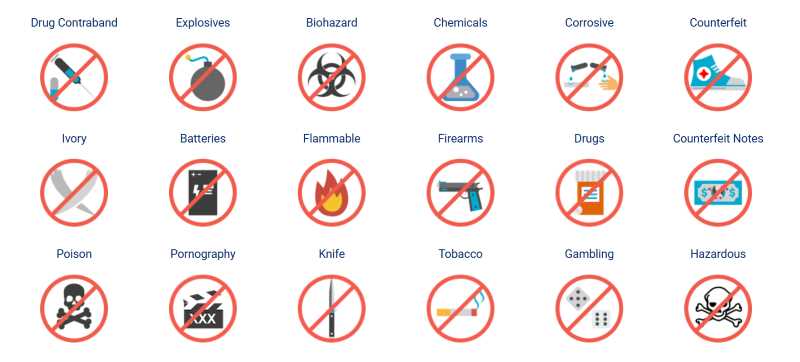2022-12-21
In international logistics transport, foreign trade people often have such confusion: obviously to transport the goods are similar, such as wired headphones and Bluetooth headphones, but was told by the freight forwarder wired headphones to take the general cargo channel, Bluetooth headphones to take the sensitive cargo channel. To answer the confusion, you should first understand the classification of goods in sea freight.
From the whole industry, the type of goods can be specifically divided into three categories: general cargo, sensitive cargo and prohibited goods. So how should these be differentiated, as revealed below!
The definition of general cargo is relatively simple and broad. General cargo refers to general cargo, no special requirements for transport, handling, storage of general cargo for transport. It means that the ordinary container box can be loaded, not dangerous goods or frozen goods and fresh goods, not extra high and extra wide, no frame and other special box goods. It is also the goods that do not need commercial inspection. In short, not the above sensitive goods and prohibited goods, can be called general cargo.
The goods of general cargo are (including but not only): goods that do not contain international brand names and imitation brands, logs, cigarettes, wine, powders, pastes, liquids, food, medicines, batteries, magnetic items, CDs, sensitive books, real gold and silver, commemorative coins, flammable and explosive, weapons and other prohibited items. More clothes, shoes, bags, school supplies, household items, cosmetic accessories (brushes, nail clippers, etc.), children's toys, mother and baby products, and most other household items belong to the general goods category.
Prohibited goods are items that are not permitted by law to be manufactured, purchased, used, possessed, stored, transported or imported privately. The prohibited items vary from country to country.
For example, the prohibited items in China are as follows
①explosive, flammable, corrosive, toxic, strongly acidic and alkaline and radioactive volatile dangerous goods, such as detonators, gunpowder, firecrackers, gasoline, alcohol, paraffin, tung oil, raw paint, matches, pesticides and all other chemical products listed in the "Practical Manual of Chemical Dangerous Goods" published by the Chemical Industry Press; if the chemical products you send are not listed in the "Practical Manual of Chemical Dangerous Goods If the chemical products you send are not listed in the "Practical Manual of Chemical Dangerous Goods", you must provide a certificate of identification issued by the chemical product identification department at the municipal level or above.
②Narcotic drugs and psychotropic substances, such as opium, morphine, cocaine, high roots, etc.; items prohibited by our national legislation from circulation or delivery, such as arms and weapons, currency, etc.
③Perishable goods, live animals of all kinds (e.g. fresh fish, fresh meat, etc.).
④.Reactionary newspapers, books, windows or obscene articles, etc.
⑤Built-in lithium batteries, chemical batteries, etc.

"Sensitive goods" refers to the goods between ordinary goods and prohibited goods, is some may be involved or has been involved in some of the strictly regulated contraband general reference, its definition is more complex. It can be divided into the following four categories.
Statutory inspection (legal inspection) of goods (including legal inspection of the catalogue - export supervision conditions have B, and outside the catalogue of legal inspection of goods).
the so-called "high-risk" goods, mainly refers to those prone to "high export tax rebates" and "false high tax rebates" of goods.
Goods that are subject to export duties, copyright or political considerations, and goods that are similar to contraband.
Goods that are electrically and magnetically charged and pose a security risk.
Sensitive goods specifically include and are not limited to the following 7 categories of items:
1.Battery goods: Bluetooth headphones, mobile phones, computers, watches and other items containing batteries. Batteries affect the magnetic field electrical signals to a certain extent and can interfere with aviation safety. They are restricted items for transportation by air, but are not prohibited goods and can be transported, but special procedures are required.
2.Unstable items such as liquids, pastes and powders, e.g. face masks, perfumes, lipsticks, etc. Such articles are also restricted articles if they are heated during direct exposure to the container while sailing at sea, thus producing a physical explosion.
3.All kinds of brand-name goods, luxury goods, such items are mostly involved in legal disputes such as infringement. Items with the origin made in xx countries and imitation brand names are legal infringement items.
4.Magnetic items such as refrigerator stickers, stereos, noise-cancelling headphones, etc., with magnetic items can easily generate electromagnetic waves in high-speed flight, or their own magnetic field will interfere with the magnetic field electronic signals, belong to the threat of security items.
5.All types of food, medicines, etc., such as: food, snacks, health products, condiments, tea, etc. Such items are involved in biological invasions and require a quarantine certificate for international transport, and may be sensitive goods if not quarantined.
6.Compact disc, CD, etc., printed matter, film, photographs, records, films, audio tapes, laser discs, computer storage media and other items that are harmful to the political, economic and cultural morality of the country of destination or involve international secrets.
7.Gold, silver, precious artwork and other valuables. Valuables are prone to theft, pilferage, robbery, etc.
It is not that sensitive goods cannot be involved in international transportation. We at JIKE Logistics have a wide range of logistics products and services and have long-term strategic cooperation with DHL, UPS, FEDEX, TNT and many other mainstream international couriers, with strong customs clearance capabilities. We can choose the best solution according to the advantages of different transportation methods to meet the needs of different types and sizes of cross-border e-commerce, and provide customers with high-quality, fast and safe international shipping services.
If you are unable to identify yourself whether you are transporting general cargo, sensitive cargo or prohibited goods, you can directly contact our professional customer service staff at JIKE Logistics to provide you with answers.

Do you understand the meaning of demurrage and demurrage charges? Are there any doubts about the conditions of the charges? Come and follow us to find out.
2022-12-19
We use third-party cookies in order to personalise your experience.
Read our cookie policy